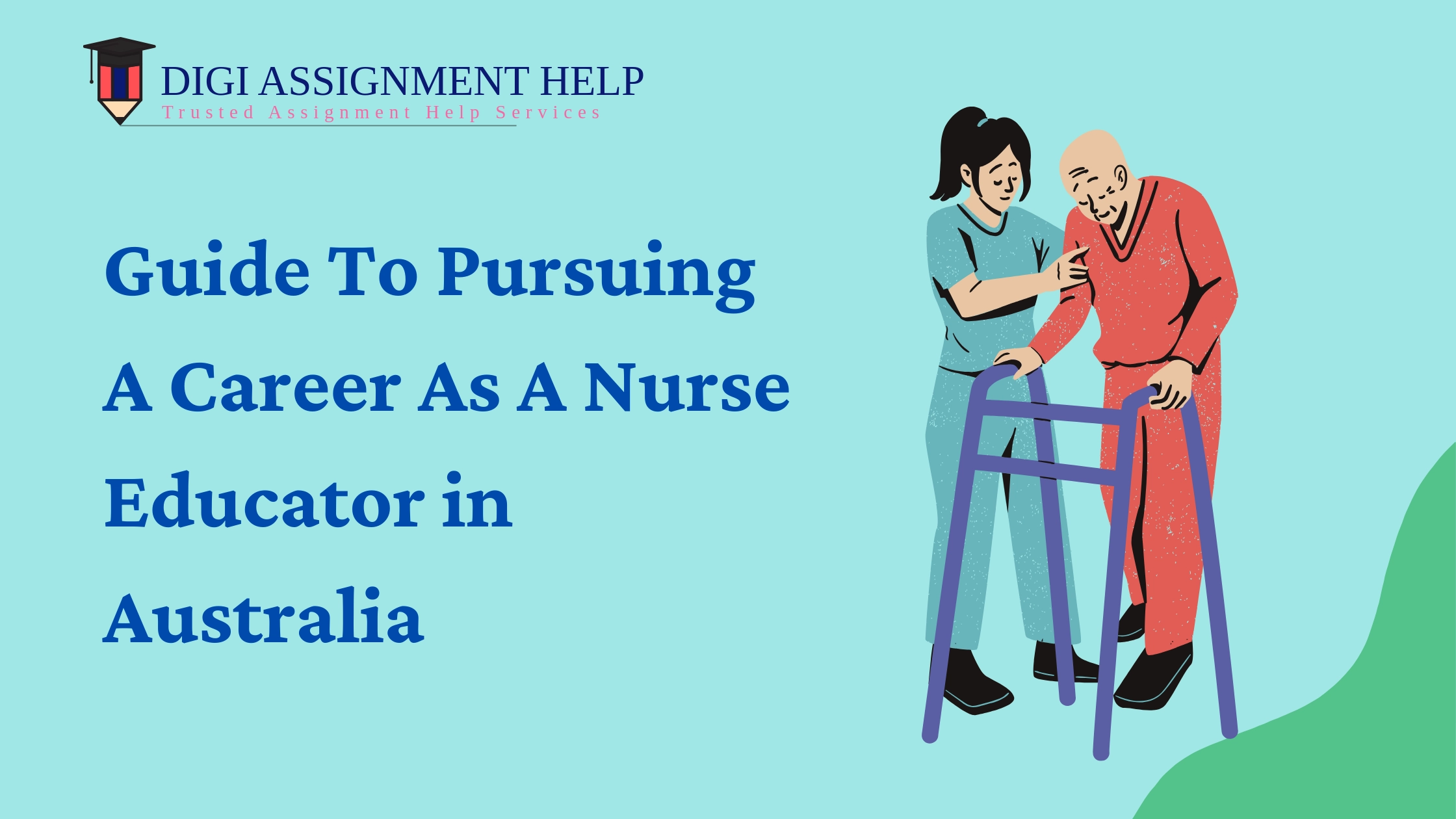Guide On Pursuing A Career As A Nurse Educator in Australia
 10-Jul-2024 05:51 AM
10-Jul-2024 05:51 AM

Guide to Pursuing a Career as a Nurse Educator in Australia
Pursuing a career in nursing offers a wide range of opportunities to students, including as a nurse educator. The programs related to this nursing education provide great clinical expertise and experience to make individuals next-gen healthcare professionals.
The demand for nurse educators is already on the rise as these professionals play a vital role in ensuring a skilled and knowledgeable workforce is available to meet the evolving needs of the healthcare system.
So, let’s elaborate on how you can pursue a career as a nursing educator and the opportunities related to that career path.
Obtaining a Professional Degree in Nursing
The primary step to becoming a professional nursing educator is to pursue a Bachelor’s degree in nursing. There are several ways to achieve this educational experience, and it allows students with diverse academic backgrounds to pursue nursing education.
The various degrees you can pursue to get your primary nursing education include:
-
Bachelor of Nursing: This program is ideally suited for high school graduates or those possessing equivalent qualifications.
-
Master of Nursing: This advanced degree program is designed for individuals holding a Bachelor's degree in nursing or a closely related field who desire to further refine their skills and knowledge base.
-
Bridging Programs: These programs cater to internationally qualified nurses seeking to obtain registration and practice in Australia.
By successfully completing an undergraduate program in nursing, individuals develop a comprehensive understanding of core healthcare concepts, including anatomy, physiology, pharmacology, and other pertinent subjects.
Once that’s complete, students can move forward to get a nursing educator certificate.
Getting a Nursing Educator Certificate
Earning a nurse educator certification provides several benefits in terms of growth opportunities and career development. It comes with the highest standards of quality and professionalism within nursing education.
The benefits associated with this certificate come with long-term effects on your career. Firstly, it enhances job prospects and unlocks access to leadership roles within the field of nursing education. Many educational institutions and healthcare organisations actively seek or mandate nurse educator certification for their positions.
Furthermore, a nurse educator certification showcases the student’s commitment to continuous professional development and keeping pace with the ever-evolving landscape of nursing education.
Benefits of Pursuing A Nursing Educator Course in Australia
Building your career as a nursing educator in Australia can deliver several benefits for your career. Have a look:
-
Renowned Educational System:Several universities and institutions in Australia are ranked for delivering the world's best education programs. This ensures graduates possess a strong theoretical foundation for their future roles as nurse educators.
-
Culturally Enriched Learning Environment:Australian education culture fosters a dynamic learning environment where collaboration and cross-cultural understanding flourish. Studying to become a nurse educator in Australia will benefit your growth with varied perspectives and enriching learning experiences.
-
Exposure to Advanced Healthcare Practices:Australia's healthcare system has always been at the forefront of medical technology globally. Nurse educators gain invaluable firsthand experience with these advancements, allowing them to integrate the latest knowledge and skills into their curriculum.
Apart from graduating as a nurse educator from Australia, students will also cultivate clinical experience and practical skills essential for success in this specialised field.
Skill Development Activities
There are several skills that individuals will learn and adapt during their course for nurse educators. These skills are essential in helping them become effective educators and seasoned professionals in their field.
-
Teaching: The core skill that you will learn as a nurse educator is teaching, wherein you will learn to create instructions, implement crucial learning solutions, and communicate with individuals for their healthcare needs.
-
Communication: Another important skill is communication, where students will get to know about different behavioural aspects of nursing. This skill will help them to foster effective interaction with the patients, cultivating a positive learning environment for other students.
-
Technical skills: Technical skills include the understanding of clinical practices, applying theoretical knowledge to real-world scenarios, and enhancing knowledge about several healthcare problems and their latest care and management opportunities.
-
Leadership: Nurse educators often play a major role as mentors and healthcare influencers. Hence this leadership skill development will provide them an edge to inspire, motivate, and guide students throughout their learning journeys.
Key Takeaways
Students looking to acquire nursing educator degrees in Australia will also receive hands-on training from reputed universities. Moreover, the graduates will gain career-shaping experience while working closely with patients, families, and fellow healthcare professionals.
Following the above guide will help you attain the best path toward becoming a successful nurse educator in Australia while opening up the possibility for more opportunities in the same field.
During the admissions process for nurse educators, if you require any help or if you want to make nursing education easier with expert-written assignments, check out Digi Assignment Help.
We offer dedicated assignment writing services for nursing students developed by expert writers. Check out our website to avail of our affordable services today.
Top Blogs
|
How To Become A Master Of Clinical Nursing ?
|
||
|
Top Universities Offering Master Of Dietetics Programs In Australia |
||
| How Many References Should be in 3000 word essay |











.webp)
















